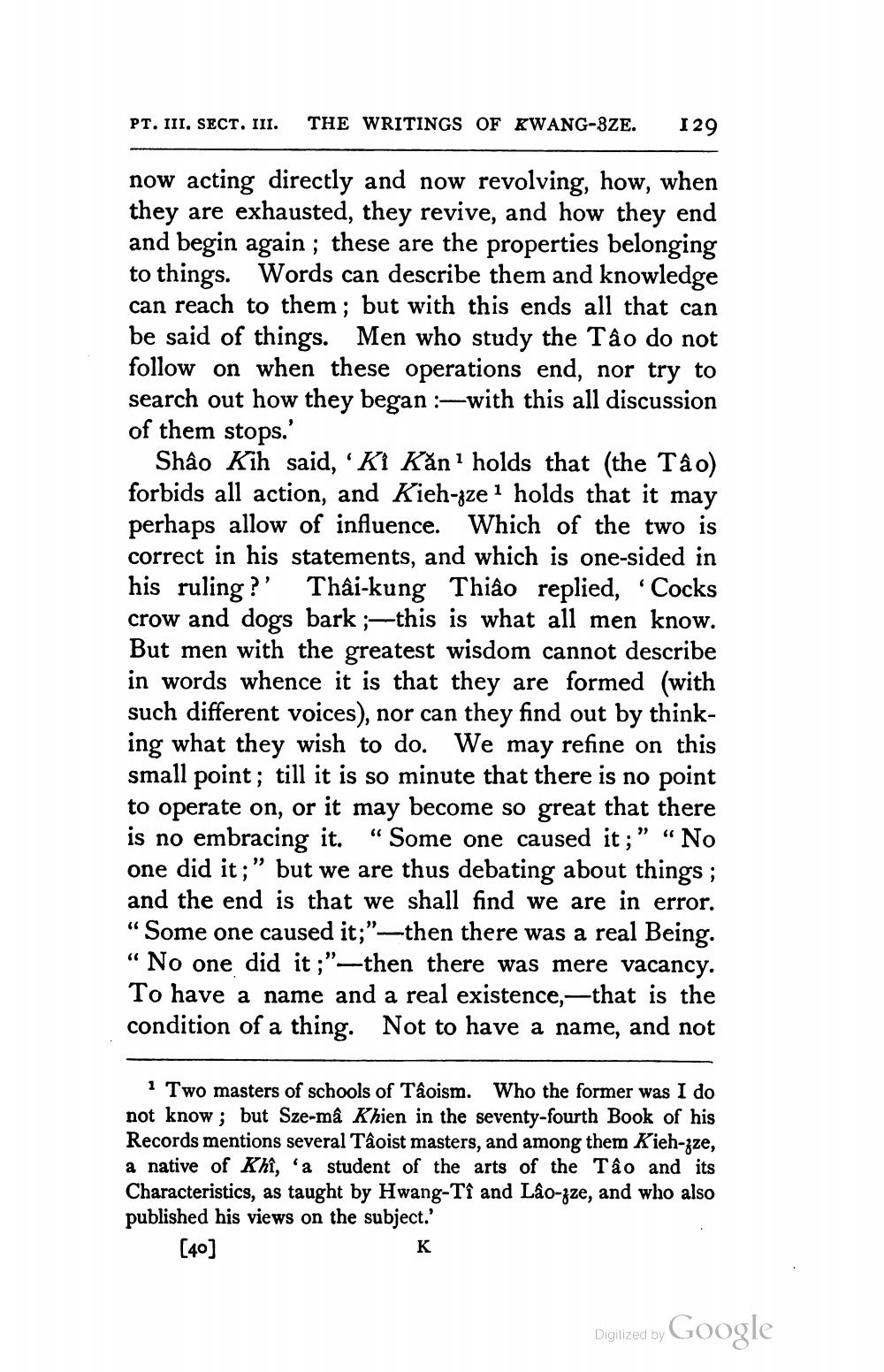________________
PT. III, SECT. III.
THE WRITINGS OF KWANG-BZE.
129
now acting directly and now revolving, how, when they are exhausted, they revive, and how they end and begin again; these are the properties belonging to things. Words can describe them and knowledge can reach to them; but with this ends all that can be said of things. Men who study the Tâo do not follow on when these operations end, nor try to search out how they began :-with this all discussion of them stops.
Shảo Kih said, Kì Kăn holds that the Tao) forbids all action, and Kieh-zze 1 holds that it may perhaps allow of influence. Which of the two is correct in his statements, and which is one-sided in his ruling?' Thai-kung Thiâo replied, Cocks crow and dogs bark;—this is what all men know. But men with the greatest wisdom cannot describe in words whence it is that they are formed (with such different voices), nor can they find out by thinking what they wish to do. We may refine on this small point; till it is so minute that there is no point to operate on, or it may become so great that there is no embracing it. “Some one caused it;” “No one did it;" but we are thus debating about things ; and the end is that we shall find we are in error. “Some one caused it;"—then there was a real Being. “No one did it ;"—then there was mere vacancy. To have a name and a real existence,—that is the condition of a thing. Not to have a name, and not
1 Two masters of schools of Taoism. Who the former was I do not know; but Sze-ma Khien in the seventy-fourth Book of his Records mentions several Tâoist masters, and among them Kieh-zze, a native of Khî, 'a student of the arts of the Tâo and its Characteristics, as taught by Hwang-Ti and Lao-zze, and who also published his views on the subject.'
[40]
Digitized by Google




